Cognitive Development Easy Math Worksheets for 3-Year-Olds
11 filtered results
-
From - To
Discover our specially designed Cognitive Development Easy Math Worksheets for 3-Year-Olds! These engaging and fun worksheets are crafted to enhance your child's early math skills, including counting, shape recognition, and basic problem-solving. Through playful activities and interactive exercises, your little ones will develop critical thinking and cognitive abilities, laying a strong foundation for future learning. Perfect for parents and educators, our printable worksheets foster a love for math by making learning enjoyable and accessible. Start your child's educational journey with these expertly designed resources that support and stimulate young minds.
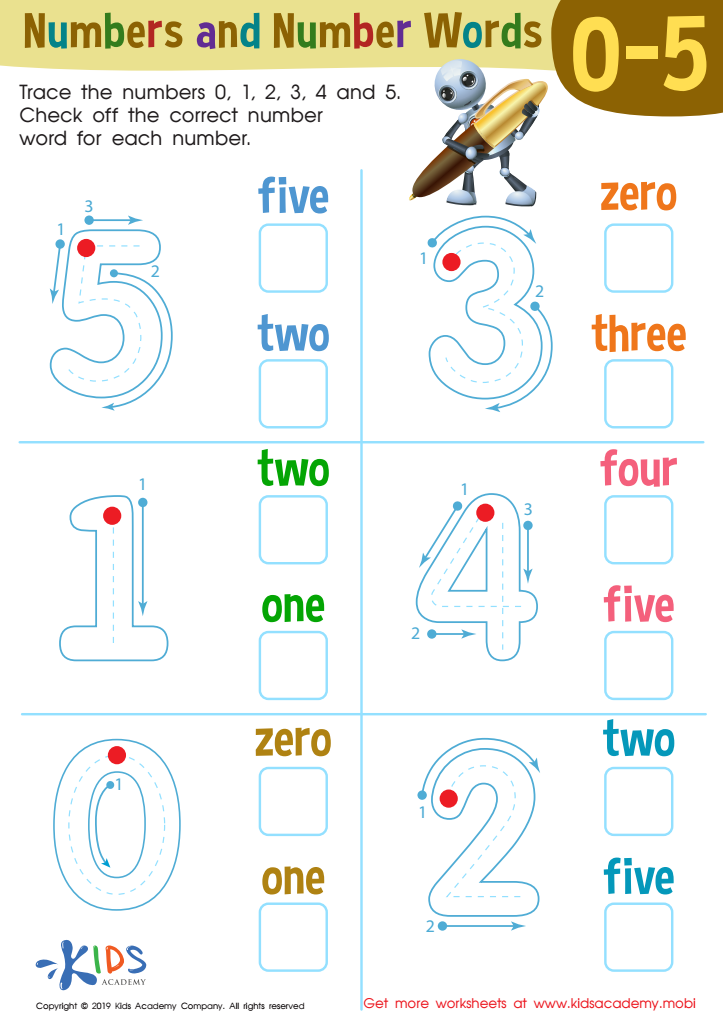

Numbers and Number Words Worksheet
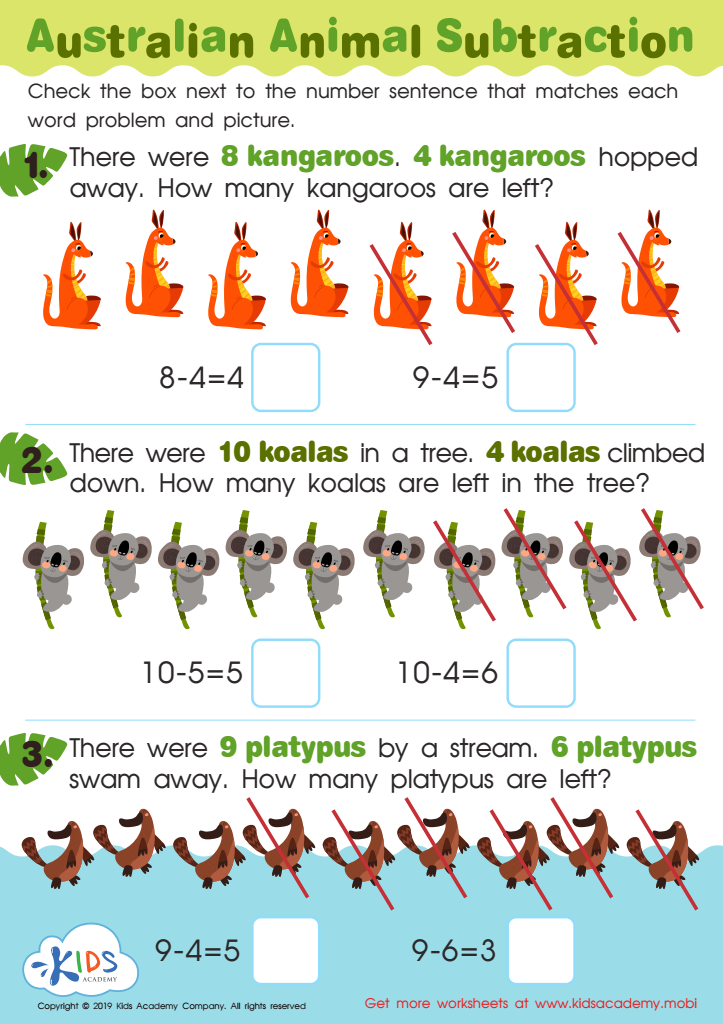

Australian Animal Subtraction Worksheet
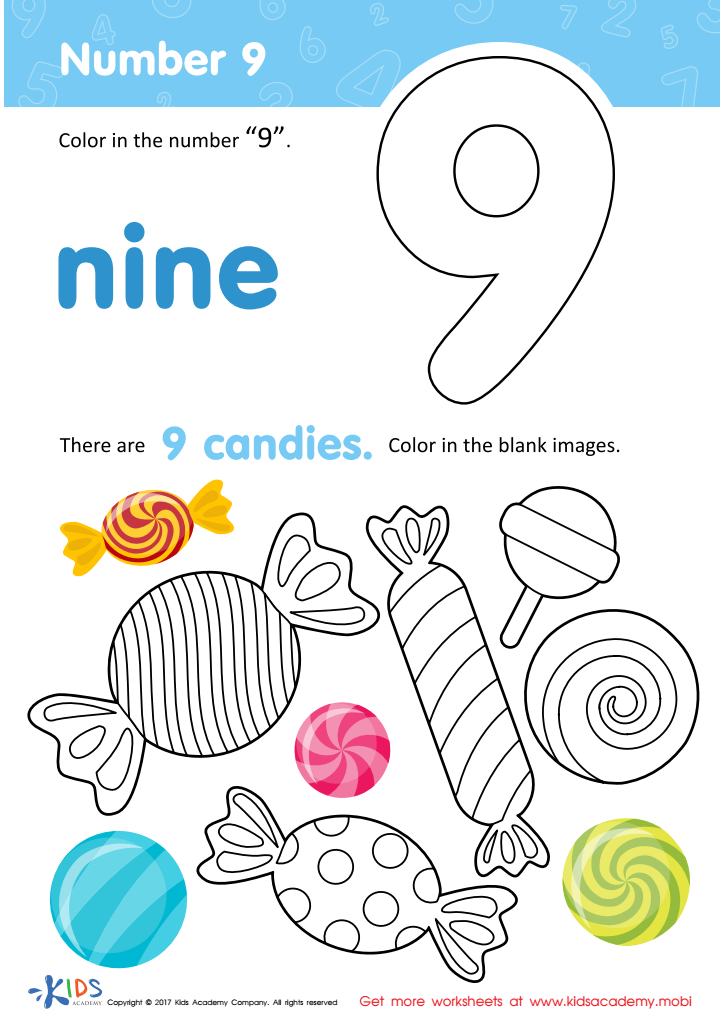

Number 9 Printable
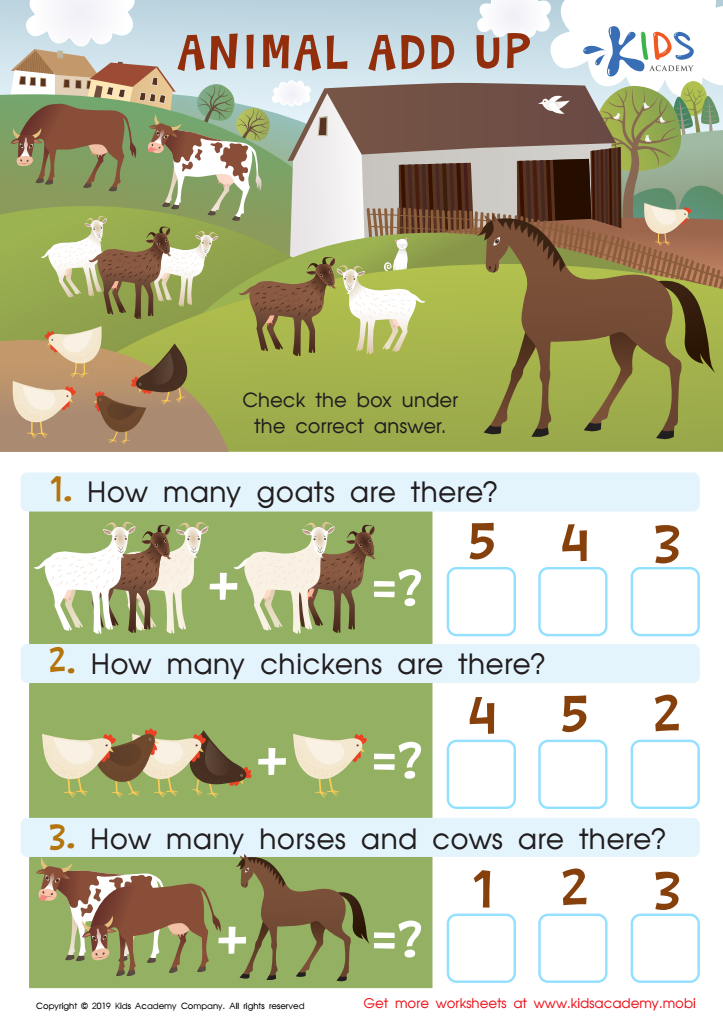

Animal Add Up Worksheet
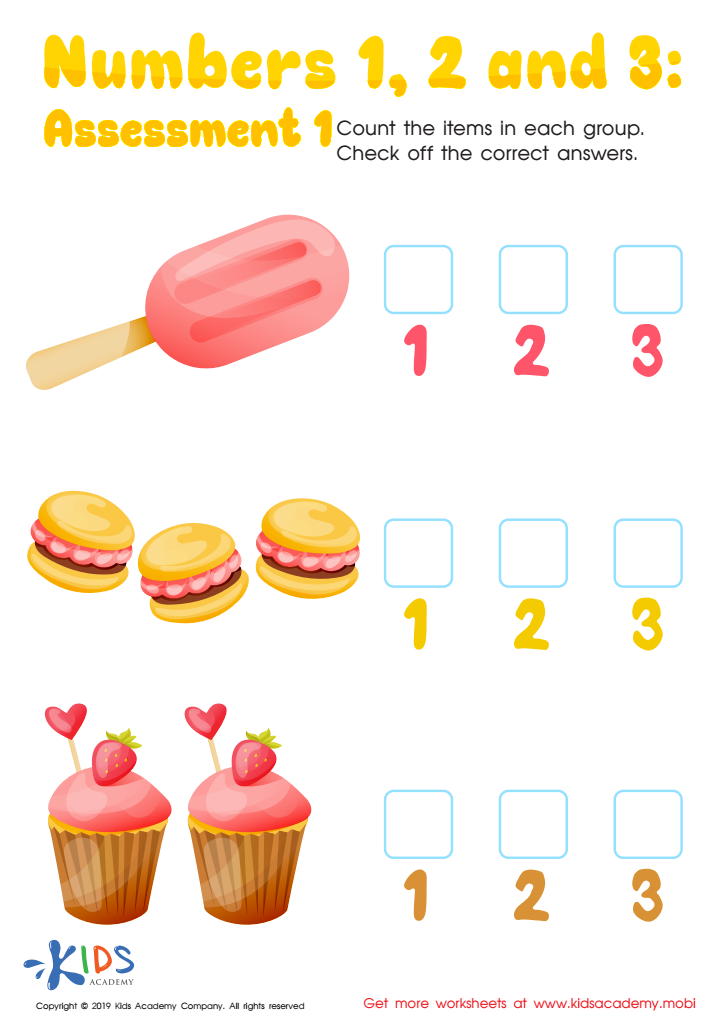

Numbers 1, 2 and 3: Assessment 1 Worksheet
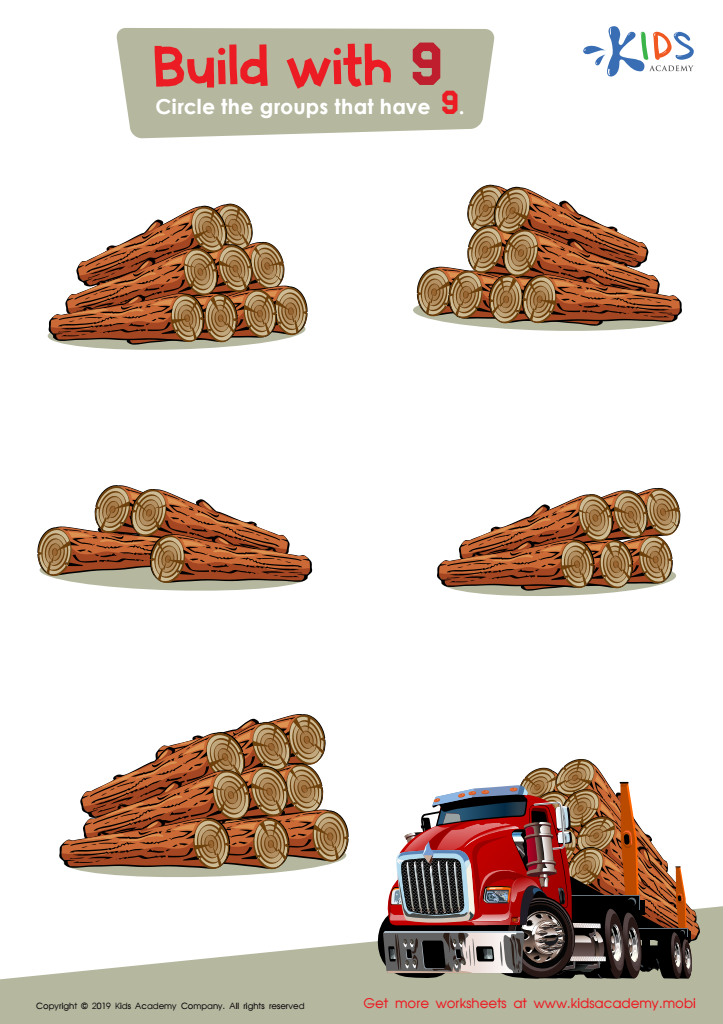

Build with 9 Worksheet
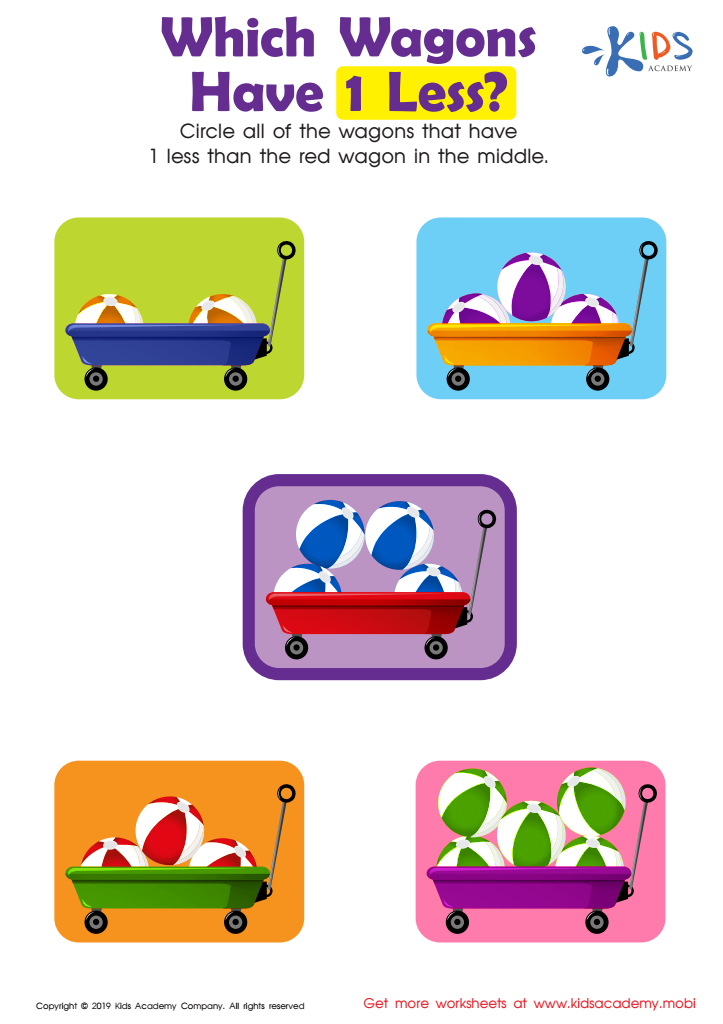

Which Wagons Have 1 Less? Worksheet
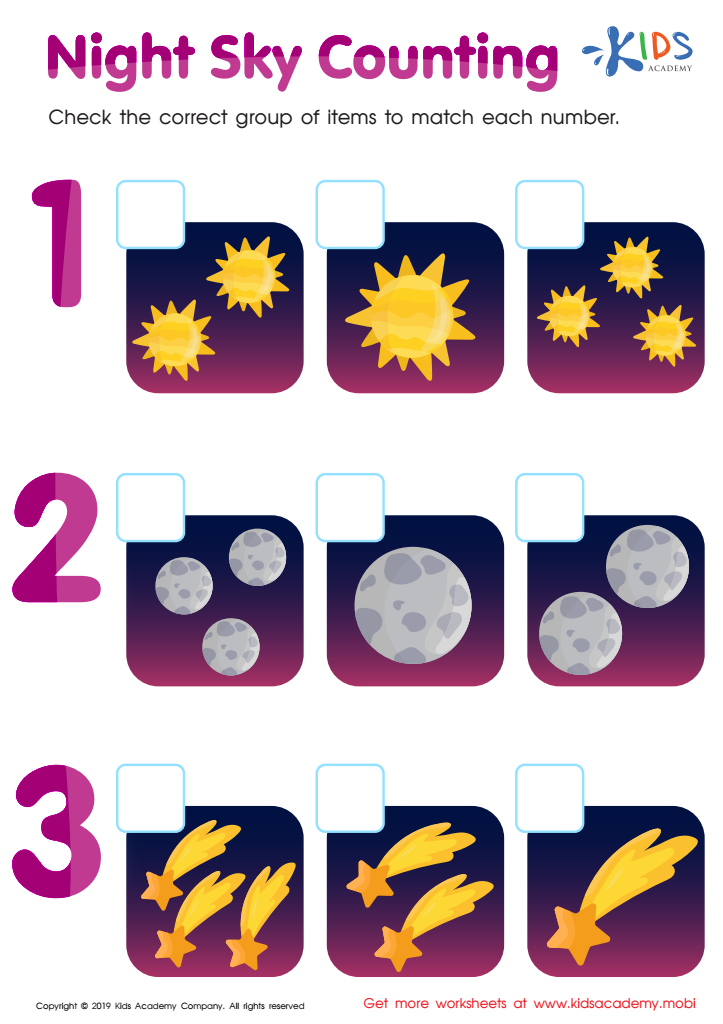

Night Sky Counting Worksheet
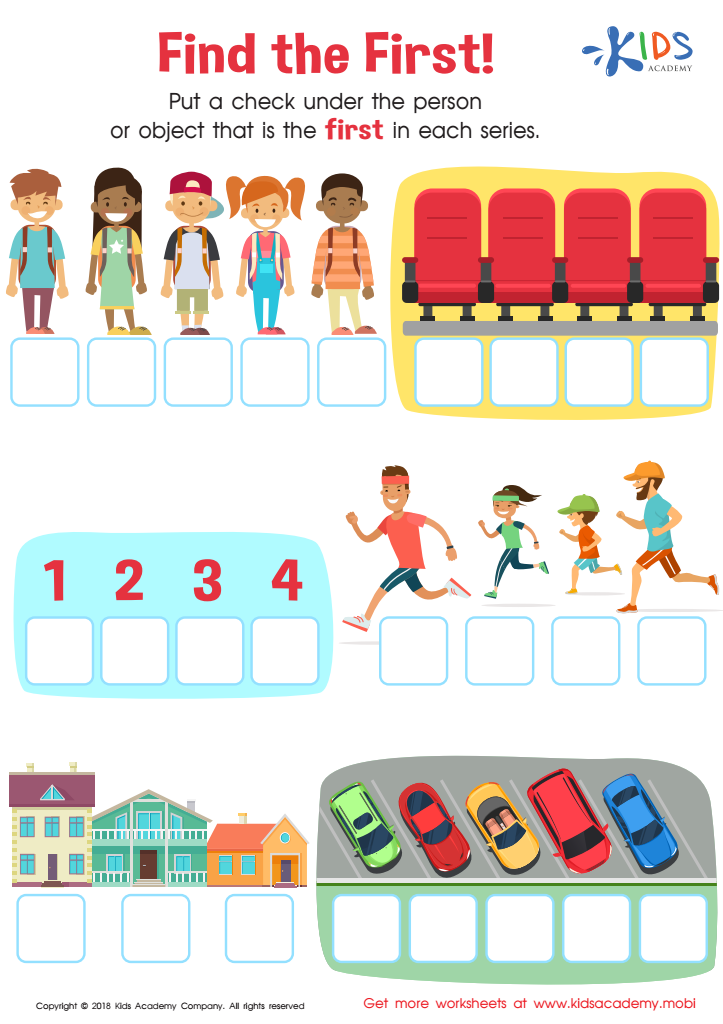

Find the First! Worksheet
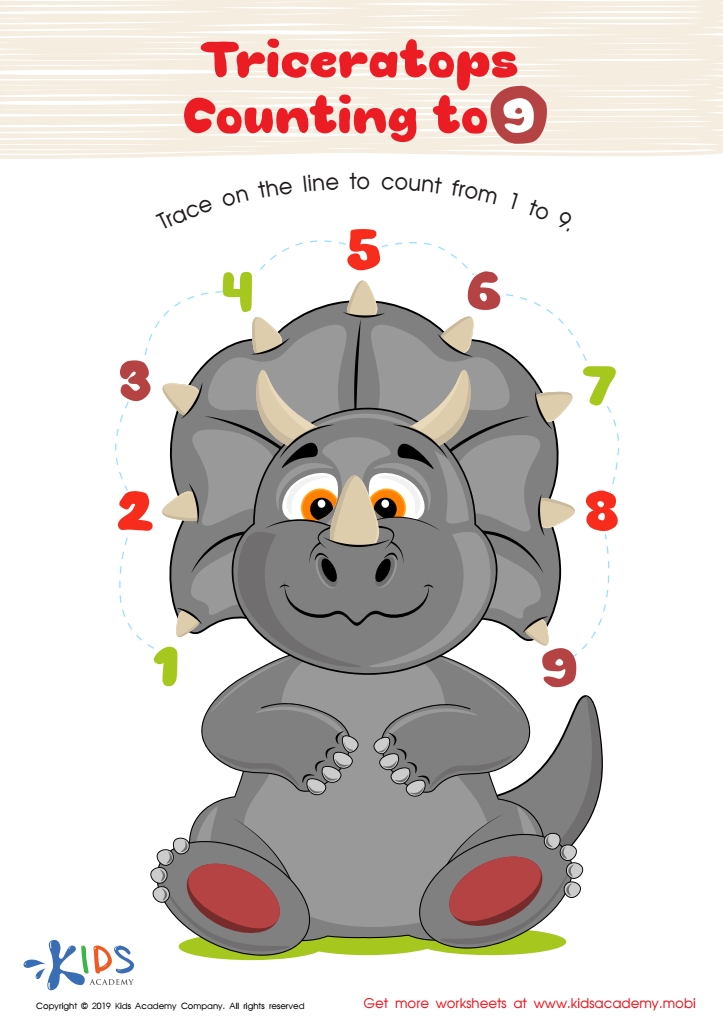

Triceratops Counting to 9 Worksheet
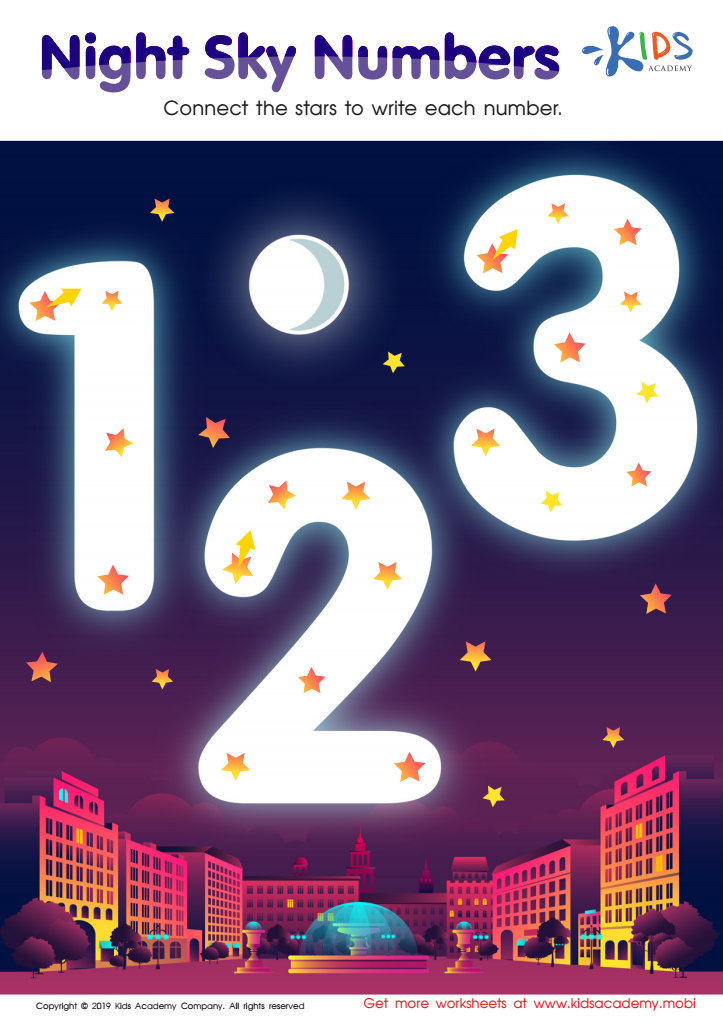

Night Sky Numbers Worksheet
Cognitive development is crucial in early childhood, laying the foundation for lifelong learning and problem-solving skills. For 3-year-olds, engaging in easy math activities can significantly enhance their cognitive development. At this age, children's brains are highly receptive to new information and establishing neural connections.
Encouraging easy math helps develop their number sense, pattern recognition, and basic problem-solving abilities. For instance, counting objects, identifying shapes, and understanding simple concepts like "more" or "less" introduce young minds to the basics of math, fostering a positive attitude towards the subject. These activities also improve their fine motor skills and hand-eye coordination as they manipulate materials like blocks or beads.
Additionally, early math experiences are linked with better performance in both math and reading later in life. They support the development of critical thinking and logical reasoning, essential skills across all subjects. Moreover, these activities can bolster a child's confidence by providing a sense of achievement.
Parents and teachers play a vital role in facilitating these experiences by creating a stimulating environment with engaging and age-appropriate math activities. Their involvement and encouragement can make learning math a fun and integral part of a child’s daily routine, setting the stage for a strong educational foundation.
 Assign to My Students
Assign to My Students






.jpg)
















